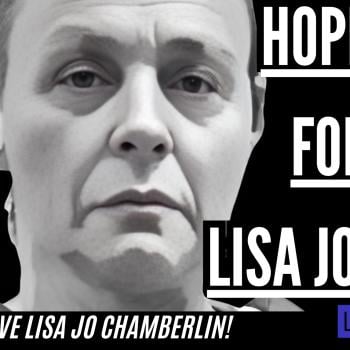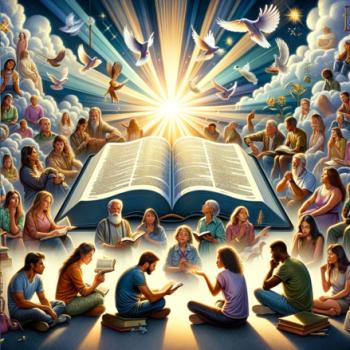The distinction here is an important one, because it is so often ignored, and these two different areas are so often conflated and then erased in the queer spiritual discourses concerned. The inborn spiritual capacity of certain individuals in the premodern and prechristian worlds was not based on sexual attraction, but instead what one's gender identity happened to be. In societies in which a wider spectrum of sexual orientation and activities are possible, potentially everyone can be what is often called "gay" (but is probably more accurately "bisexual") in today's terminology; and that does not and has never meant that therefore all of those people are spiritually superior. They were nowhere near as superior as everyone else, because they were "everyone else!"
The appropriation of what is more accurately transgender, transsexual, and intersexed spiritual heritage by mostly gay male proponents of queer spirituality -- and then oftentimes an erasure of interest in or concern for actual transgender, transsexual, and intersexed people, their rights, their concerns, their inclusion in groups, and their very visibility -- is highly disturbing and problematic. (It occurs in social and political groups as often as it does in spiritual groups, if not more so since there are a larger number of such social and political groups.)
While the concerns of gender variance and sexual orientation are separate, they are not entirely different. Objections about sexual orientation differences usually arise in a context where there are beliefs about gender dualism being a given, and a necessity of such gender dualism for creation, and therefore transgressions of these "norms" are against the will of the gods or of nature. In other words, men should "act like men" and only have sex with women, and women should "act like women" and only have sex with men. A gendered assumption lies underneath any heteronormative and heterosexist construction of norms for sexual orientation. Yet, that doesn't mean that the experience of a gay man is the same as a transwoman, or a lesbian's experience is the same as a transman's, or that bisexuality and nondualistic gender identity are the same thing either.
So, as my subtitle suggests, in terms of the conflation of gender-variant spiritual practitioners of the past and homoeroticism, I have to object to these interpretations of queer spirituality (which is, more often than not, only gay or lesbian spirituality) by saying, "I do not think it means what you think it means!"
Of course, what tends to underlie these assumptions is a very subtle form of heterosexism and gender dualism, despite the often noble and usually very vocal attempts by the proponents of these views to the contrary. The ideal of spiritual androgyny is held up as the aim and goal of human spiritual endeavor, and therefore gay men are automatically superior in this game of spiritual androgyny advancement because they are "equally male and female."
I've met a lot of gay men in my time, and while there are drag queens, genderqueer and gender variant males, and a whole variety of other possibilities, a good few gay men I know and have met are about as hyper-masculine as one could imagine, and have all of the stereotypical "male" behaviors of not being comfortable with expression of emotions or communication, and any number of other such things. The same is true of some lesbians I've met, though there is often a higher degree of androgyny, and even an exerted effort to play more freely with gender stereotypes amongst lesbians than amongst gay men, although there are just as many hyper-feminine lesbians as über-butch ones.
The expansion of what is possible in terms of gender characteristics as a male or a female among gay and lesbian populations is nothing but a good thing; but the automatic reification of "gender balance" and androgyny as a high spiritual state that all homoerotically inclined people share inherently simply isn't true nor accurate to the experience of a lot of gay and lesbian people -- many of whom are profoundly spiritual, but a great many of whom have no interest in nor propensity for spiritual experience and practice at all.
The automatic equation of polytheistic religions with societies in which gender-variance and sexual orientation flexibility exists is also problematic. A spiritual classic amongst modern queer spiritualities is Arthur Evans' Witchcraft and the Gay Counterculture, and yet the ease with which gender variance, homoeroticism, and polytheism -- not to mention an easy equation with and credence given to all that was negatively reported about European witch cults by their Christian persecutors, and how such activities as massive orgies with indiscriminate sex among all present were, in fact, continuations of ancient cults like the Dionysian/Bacchic revels of classical and late antiquity -- are all subsumed under one heading simply doesn't do justice to the original cultures involved, nor does it respect the very different historical and religious contexts, concepts of gender and sex, and other issues involved. Granted, more than thirty years have passed since the publication of that book, but some of the assumptions and easy conflations it makes can still be found today.





